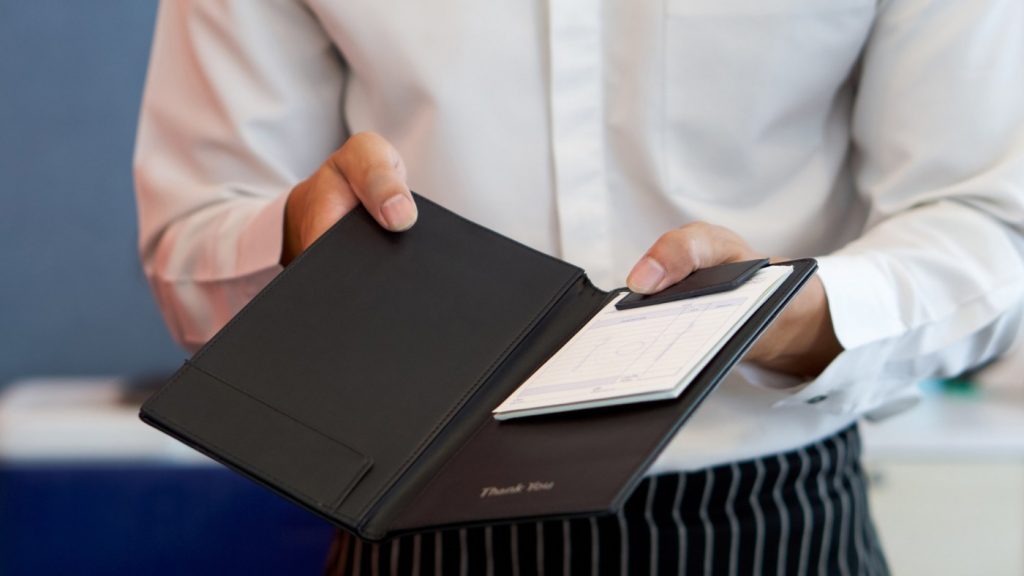A state bill designed to eradicate junk or hidden fees, and signed into law in October, is set to take effect on July 1.
The new law, as interpreted by the Attorney General’s Office, means a restaurant cannot charge an additional surcharge on top of the price listed. And it seemingly brings to an end the practice of restaurants adding 3, 4, 5 and 6 percent service fees on to bills, often to the chagrin of diners.
However, a newly proposed bill, Senate Bill 1524, seeks to clarify that restaurant surcharges are legal so long as fees are, “clearly and conspicuously displayed on the advertisement, menu, or other display.”
State Sen. Bill Dodd, D-Napa, who authored both bills, is advancing the legislation as an urgency measure, because the law, as interpreted, will, “pose a serious threat to restaurants.”
The hotly debated surcharges have grown in popularity among San Diego-area restaurateurs, who say they rely on the fees to afford increases in labor costs or to boost pay for back-of-house workers who aren’t tipped.
But patrons hate the fees and often lament the practice on social media sites.
Q: Should restaurant surcharges be legal?
Economists
Kelly Cunningham, San Diego Institute for Economic Research
YES: Transactional fees are almost universal. Transit taxes are added on top of advertised hotel room rates, as well as sales taxes applied to retail prices by governments because they can. As long as restaurants disclose the total charges upfront, they are simply providing a partial breakdown of their costs. Restaurants attempt to absorb increasing costs without deterring customers. Consumers are concerned with the expected value of products within limited price ranges they are willing to pay.
Norm Miller, University of San Diego
YES: We all want to know full charges in advance, but the key is open and transparent disclosure. My preference would be for such charges to be included in the prices, but I’d prefer less government involvement in the oversight of restaurant menus. What is far worse, at present, are entertainment venues and ticket scalpers, akin to going to a restaurant, ordering a meal, and having the bill show up at twice the posted price.
Ray Major, SANDAG
YES: All businesses, not just restaurants, should be honest and transparent about the cost of a good or service. If the menu says a dish is $20, then the customer should expect to pay $20, plus sales tax and an optional tip but not any additional fees. This practice is disingenuous as these surcharge fees are not meant to be reversed or come off. Customers should be able to know upfront the cost of a service so they can best compare prices.
David Ely, San Diego State University
YES: Pricing should be transparent to restaurant patrons. Governments should establish rules that make surcharges clear to customers and stop restaurants from surprising customers with unexpected fees at the end of a meal. But they should be cautious about controlling how businesses charge for their services. If patrons are sensitive to higher menu prices, restaurants should be able to choose to keep prices lower and add a surcharge if it means retaining more customers.
Caroline Freund, UC San Diego School of Global Policy and Strategy
NO: You should have confidence that the price you see will be the price you pay. With price transparency, you won’t get an unpleasant surprise when the bill arrives, and you can more easily comparison shop. Even if prices go up to compensate for lost fee revenue, the total cost to you will be the same. In addition, surcharges may hide from official statistics, making it harder to track inflation and design appropriate policies.
Lynn Reaser, economist
NO: Ideally, enterprises should not be told how to run their businesses. Restaurants have been hit by the higher costs of food and supplies, while driven to surcharges by increases in the minimum wage. However, consumers should know up front what their total meal will cost. Surcharges, even if disclosed, are irritating and make price comparisons between restaurants and of consumer impact that much more difficult. The practice should be ended.
Alan Gin, University of San Diego
NO: This is a “bait-and-switch” situation, where customers see one price on the menu but end up paying a higher price. If restaurants need more revenue, they can raise prices by the amount of the surcharge. People in the restaurant industry acknowledge that there is no difference in the two approaches other than a psychological one with the higher prices. Hotels have been able to deal with this by listing their total nightly rates, which include extra fees that are charged.
James Hamilton, UC San Diego
NO: Restaurants have a right to charge whatever price they want. But they don’t have a right to hide the price from customers or try to trick people into paying more than they expect. I’m OK with a surcharge or service fee as long as it’s indicated very prominently on the menu in a way that nobody can miss. But I worry that in many cases the purpose of these surcharges is to mislead the customer.
Executives
Bob Rauch, R.A. Rauch & Associates
YES: While I oppose surcharges and do not use them in our restaurants, SB 1524 will clarify how surcharges are posted. Restaurants can impose service charges, mandatory gratuities, and other menu charges, but only if those charges are clearly and conspicuously disclosed in advance to restaurant guests. That means on the website, within social media promos, and on menus, not in small print.
Jamie Moraga, Franklin Revere
YES: The caveat is that any fees and surcharges must be clearly listed before customers dine in or order to go. This transparency will allow customers to decide if they want to dine at an establishment that has the fees and surcharges or if they want to select a different restaurant that doesn’t. Customers should always know these costs up front and not be surprised when paying the bill.
Chris Van Gorder, Scripps Health
NO: But I have mixed feelings about this. Like all businesses, restaurants must pass costs on to customers in one way or the other, but adding a surcharge is a slippery slope; it misleads the customer. I’d rather see the complete charge built into the item I purchase and base my decision to buy or not based on that charge.
Phil Blair, Manpower
YES: There is a push to have companies (airlines for example) list any added charges for a total sales price. Restaurants should be able to show the public when mandated charges are forced on them. It clearly needs to be visible to the guest. The added charges also allow restaurants to share fees with the back-of-house kitchen staff since tips go to servers. This often results in higher earnings than may be deserved.
Gary London, London Moeder Advisors
YES: But these surcharges are wrong. In fact, they represent incredibly tone-deaf marketing. When presented with surcharges, I deduct them from my tab prior to calculating the server tip. I then base the tip amount on a percent of the net, before taxes. Bottom line: Restaurants should charge what they want and compensate employees without interference from lawmakers. They should not be corrected for their stupidity. Patrons should take care of that.
Austin Neudecker, Weave Growth
NO: Consumers deserve price transparency. Unavoidable fees added to all bills, even if noted at the bottom of the menu, feel deceptive. Costs are increasing due to inflation, so either raise prices or decide the market won’t bear the associated increase and find ways to save elsewhere. Further, I support ending any recommended tipping and including a flat and fair in-dining fee.
Not participating this week:
Haney Hong, San Diego County Taxpayers Association


